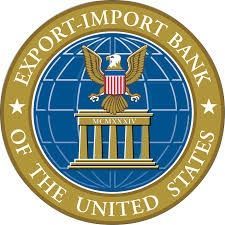U.S. Export-Import Bank Drama Shows Growing Rift Between Republicans

Even before news broke that four of its employees were ousted amid allegations of fraud and corruption, the U.S. Export-Import Bank has been the subject of great drama for some time now, and is under intense scrutiny coming up to a September deadline when lawmakers will decide on whether or not to reauthorize the agency.
It’s a debate that pits the Obama administration and some conservatives against the Tea Partiers, all in an effort to safeguard American business interests, with House Speaker John Boehner caught in the middle.
The bank’s purpose is to help boost U.S. business through loan guarantees and financing to foreign companies that borrow money to buy American products. Last year, this meant $37.4 billion in deals.
But the 80-year old institution has become the center a fault-line in the GOP between traditional Republicans and Tea party groups who say it’s an example of crony capitalism.
Last year, the bank was responsible for more than $37 billion worth of export deals.
On Monday, 865 business organization including Alcoa Inc. (NYSE:AA) and Lockheed Martin Corp. (NYSE:LMT) wrote a letter urging officials to support the bank’s continuation.
“Failure to reauthorize Ex-Im would amount to unilateral disarmament in the face of other governments’ far more aggressive export credit programs,” they wrote, citing agencies in China, France, Germany, Brazil and Korea.
They add that “American companies would be put at a unique disadvantage in global markets, resulting immediately in lost sales and lost jobs,” if the bank was shut down.
Meanwhile, 42 House Republicans also wrote to Boehner, saying that the bank should maintain its authorization, as it “provides certainty and stability for U.S. manufacturers and exporters of all sizes.”
“Given our nation’s fragile economic recovery, we must continue to promote U.S. exports and create American jobs,” the letter says, adding the program also generates “much needed revenue for the federal government.”
Bloomberg reported that overseas sales backed by the bank accounted for about two percent of all U.S. goods exports last year, with The Boeing Company (NYSE:BA), Caterpillar Inc. (NYSE:CAT) and the General Electric Company (NYSE:GE) topping the list of biggest beneficiaries.
The opposition to reauthorization is coming from Tea Party conservatives, who argue that the Ex-Im bank is a prime example of how U.S. policy supports Wall Street and not Main Street.
“When government gets involved in steering huge amounts of taxpayer dollars to private interests, there’s always the concern that this type of cronyism won’t be far behind,” said Tim Phillips, president Americans for Prosperity, an advocacy group founded by billionaire industrialists Charles and David Koch, in an emailed statement responding to the latest news about fraud allegations.
“This story shows that the Export-Import Bank does business based on political connections,” he said. “Ex-Im helps those that can afford to play the Washington game.”
Incoming Majority Leader Kevin McCarthy has argued that the bank has no place in the public sector.
“I think the Ex-Im Bank is… something government does not have to be involved in,” he said in an interview on Fox News on Sunday. “One of the biggest problems with government is they go and take hard-earned money so others to things the private sector can do. That’s what the Ex-Im Bank does,” he said.
A middle ground also seems to be emerging. Some big business advocates have pledged their support for the bank, but with changes.
On Tuesday, Delta Air Lines Inc. (NYSE:DAL) advocated for its reauthorization with some caveats.
“The Bank should not be reauthorized without significant reforms,” said Delta spokeswoman Hiroko Okada to Reuters. “Delta has consistently said reforms are needed to stop U.S. taxpayer subsidized financing to our foreign competitors.”
© Copyright IBTimes 2025. All rights reserved.






















